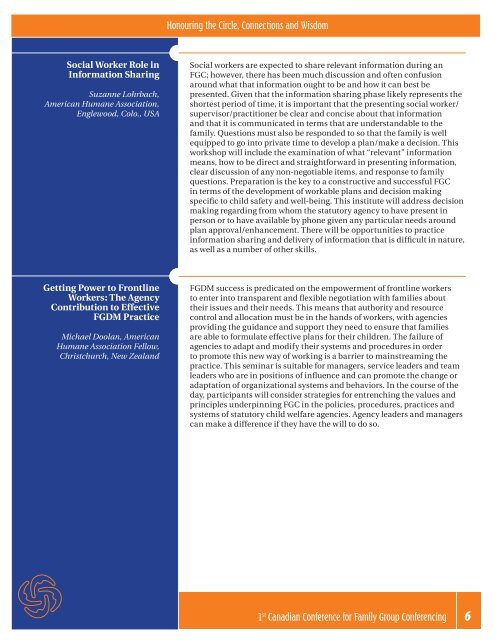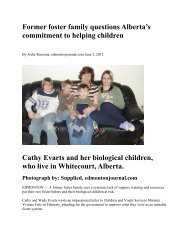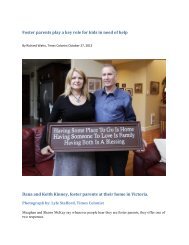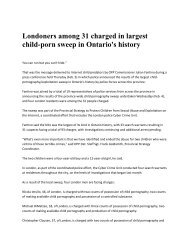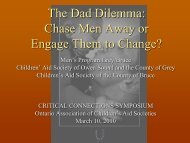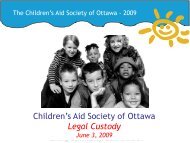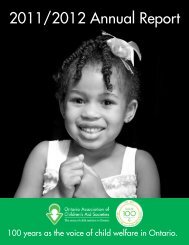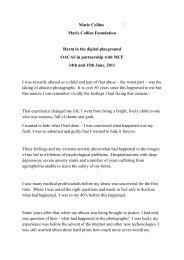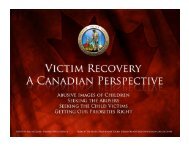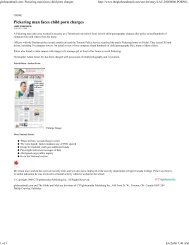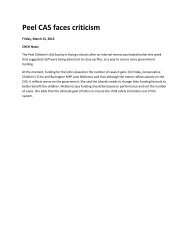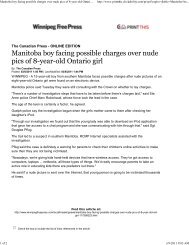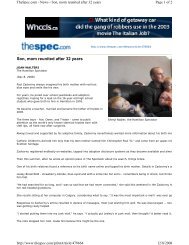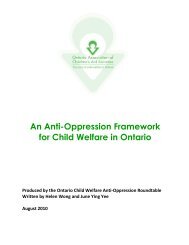PROGRAM GUIDE - American Humane Association
PROGRAM GUIDE - American Humane Association
PROGRAM GUIDE - American Humane Association
Create successful ePaper yourself
Turn your PDF publications into a flip-book with our unique Google optimized e-Paper software.
Honouring the Circle, Connections and Wisdom<br />
Social Worker Role in<br />
Information Sharing<br />
Suzanne Lohrbach,<br />
<strong>American</strong> <strong>Humane</strong> <strong>Association</strong>,<br />
Englewood, Colo., USA<br />
Social workers are expected to share relevant information during an<br />
FGC; however, there has been much discussion and often confusion<br />
around what that information ought to be and how it can best be<br />
presented. Given that the information sharing phase likely represents the<br />
shortest period of time, it is important that the presenting social worker/<br />
supervisor/practitioner be clear and concise about that information<br />
and that it is communicated in terms that are understandable to the<br />
family. Questions must also be responded to so that the family is well<br />
equipped to go into private time to develop a plan/make a decision. This<br />
workshop will include the examination of what “relevant” information<br />
means, how to be direct and straightforward in presenting information,<br />
clear discussion of any non-negotiable items, and response to family<br />
questions. Preparation is the key to a constructive and successful FGC<br />
in terms of the development of workable plans and decision making<br />
specific to child safety and well-being. This institute will address decision<br />
making regarding from whom the statutory agency to have present in<br />
person or to have available by phone given any particular needs around<br />
plan approval/enhancement. There will be opportunities to practice<br />
information sharing and delivery of information that is difficult in nature,<br />
as well as a number of other skills.<br />
Getting Power to Frontline<br />
Workers: The Agency<br />
Contribution to Effective<br />
FGDM Practice<br />
Michael Doolan, <strong>American</strong><br />
<strong>Humane</strong> <strong>Association</strong> Fellow,<br />
Christchurch, New Zealand<br />
FGDM success is predicated on the empowerment of frontline workers<br />
to enter into transparent and flexible negotiation with families about<br />
their issues and their needs. This means that authority and resource<br />
control and allocation must be in the hands of workers, with agencies<br />
providing the guidance and support they need to ensure that families<br />
are able to formulate effective plans for their children. The failure of<br />
agencies to adapt and modify their systems and procedures in order<br />
to promote this new way of working is a barrier to mainstreaming the<br />
practice. This seminar is suitable for managers, service leaders and team<br />
leaders who are in positions of influence and can promote the change or<br />
adaptation of organizational systems and behaviors. In the course of the<br />
day, participants will consider strategies for entrenching the values and<br />
principles underpinning FGC in the policies, procedures, practices and<br />
systems of statutory child welfare agencies. Agency leaders and managers<br />
can make a difference if they have the will to do so.<br />
1 st Canadian Conference for Family Group Conferencing 6


